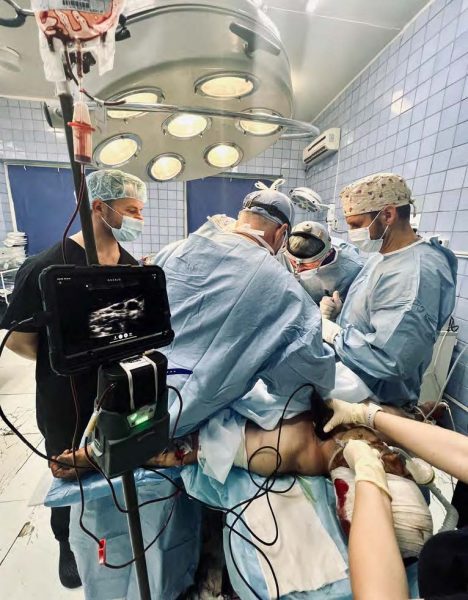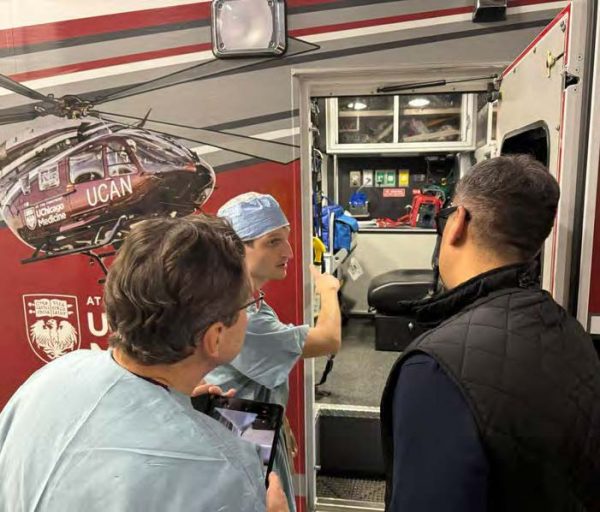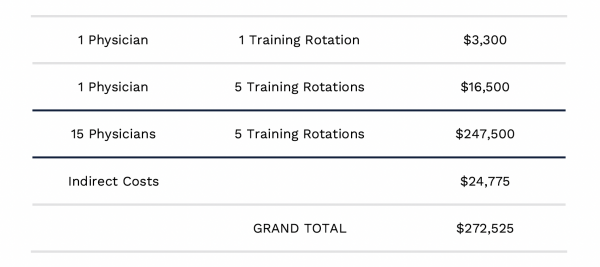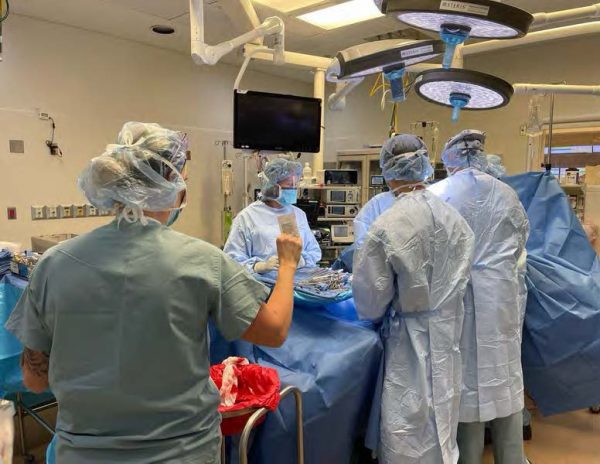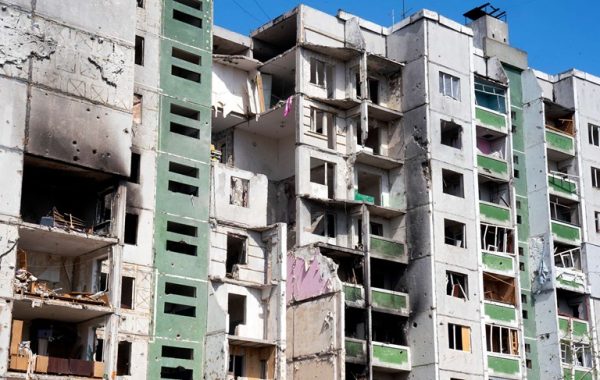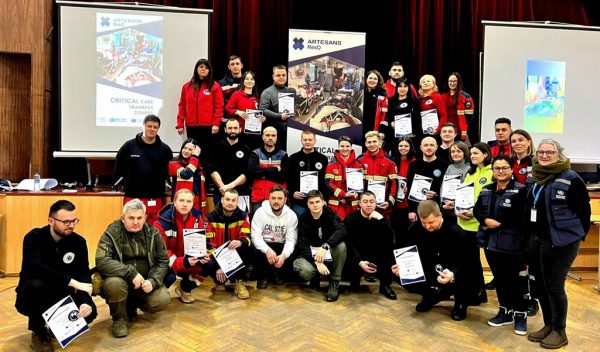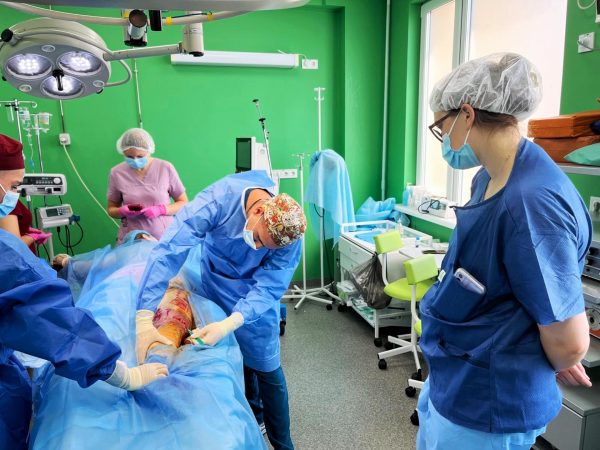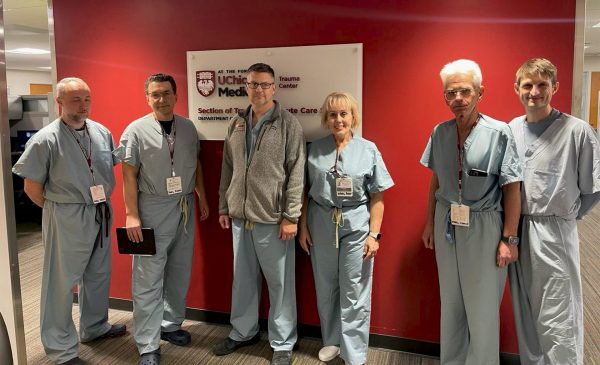Mission Report: Kyiv, December 2024
As I sit in the safety of my London hotel room, my mind keeps returning to our recent trip to Ukraine. While GRM has been a stable presence since the start of the invasion, it was my first visit as part of the team. As we boarded the overnight train, I was immediately confronted by sensory memories. The sounds—heavy suitcases rolling over uneven sidewalks, the sharp whistle of the train. The smells—smoke from hand-rolled cigarettes, bitter Nescafe, the unmistakable scent of too many people in too small a space. The sights – women and children lugging suitcases that are too heavy, the style of the train car. These sensations transported me back to Greece in 2016, a reminder that certain experiences span all humanitarian environments, offering strange comfort in uncertain situations.
Mission Impact
Over five intensive days, our team—including Dr. Barclay Stewart (board-certified trauma, burn, and critical care surgeon), Andrea (Deputy Director), and myself—worked alongside Natalya Zachynska (GRM Ukraine Country Director) and Taras Kushnir (Medical Education Director) to advance several critical initiatives:
- Conducted comprehensive follow-ups with all medical fellows from our US-based specialized training program, validating their implementation of advanced skills and identifying opportunities to strengthen future training
- Established new partnerships with Kyiv Mental Health Hospital and Main Medical Hospital, laying groundwork for our upcoming Invisible Wounds program
- Positioned GRM to support critical mental health services for Ukraine’s estimated 5 million veterans
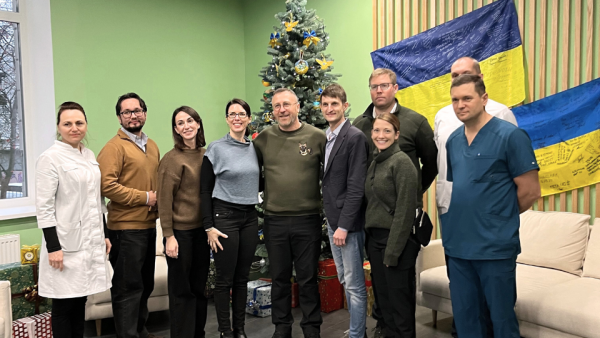
Expanding Our Impact: Veterans’ Mental Health
The Kyiv Mental Health Hospital has requested GRM’s support in professional training—a responsibility we embrace with both determination and humility. As a country with over two decades of combat deployment experience, we carry hard-won insights through successes and failures about treating service members’ physical and mental trauma. Early intervention correlates directly with increased resiliency, and we will not let another generation of veterans face these challenges alone. We are honored to support the hospital’s innovative department.
More details to come in our newsletter next week!
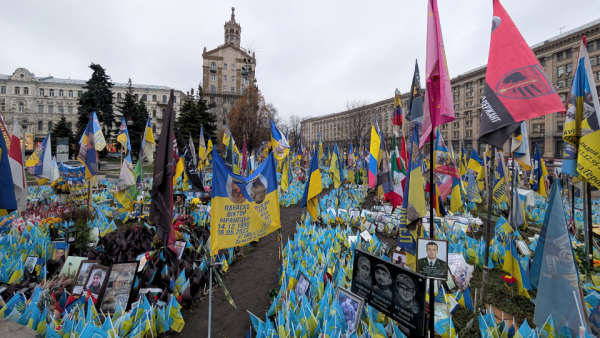
Ground Truth
Life in Kyiv moves to the rhythm of air raid sirens—averaging 10 alarms per night, usually from drones. The rules become second nature: under 10 drones, stay in bed; over 10, head to the basement shelter; for missiles, immediate shelter is non-negotiable. Sunday night into Monday morning brought the most alerts, wreaking havoc on work and school schedules the next day. It’s psychological warfare by design—not all drones carry warheads, but all carry the weight of fear and exhaustion.
While our hotel’s generator spared us from power and heat outages, I can’t shake the feeling that our time there was easy compared to what residents endure. The psychological impact on children particularly haunts me.
The Responsibility of Being There
When people ask about my experience, I struggle with an uncomfortable truth—I loved it. I loved spending time with our team, learning Ukraine’s rich history, savoring the local food, and engaging in discussions about programs that are vital to Ukraine’s future. But most profoundly, I loved reconnecting with our medical fellows.
The hard reality of war means each meeting carries extra weight and a question: will we see each other again? I looked them in the eyes, saw them smile, and gave them hugs – these moments overflow with gratitude, relief, affection, and admiration. I am honored to know them, proud of what they’ve accomplished, and respect what they stand for.
There’s always an adrenaline rush in this work—anyone who claims otherwise needs some self-reflection. But there’s also guilt. Guilt for being excited to go home, guilt for having the option to leave, guilt for leaving at all. The faces of those left behind remain with me, their fates uncertain.
These remarkable individuals embody why we go where others won’t and do what others can’t. Whether you’re saving lives in your community or supporting those who do, you become part of this mission.
Help us help them Save Lives. Period.
Slava Ukraini,
Krystal Garvin
